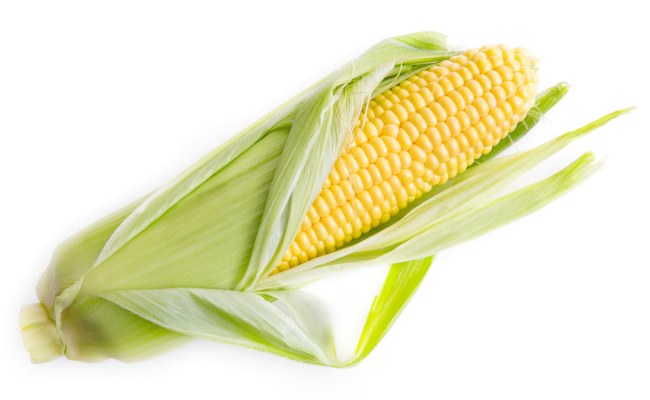Have you seen the movie “Pocahontas”? Do you remember how Captain John Smith and his crew sailed all the way to Virginia (Pocahontas’ home) to look for gold? In John’s word,
“It’s yellow, comes out of the ground, it’s really valuable”. Pocahontas thought that he was describing corn! Funny right!
But come to think of it, what better figurative way is there to describe corn but as “edible yellow gold”? It is one of the world’s most popular cereal grain, and it has made a lot of companies rich. But even better than that, it has a trailer load of health benefits to offer.
Nutritional Value of Corn
Corn (or maize) contain nutrients like –
- Carbohydrate
- Protein
- Water
- Fats
- Sugar
- Fiber
Corn is mostly carbs and fiber. It also contains a decent amount of low-quality protein. So, corn is not a good option when it comes to protein, but it sure is a good source of carbs and fiber.
Most corns are yellow in color, but there are other varieties of colors such as red, black, white, orange, purple, and blue.
Health Benefits of Corn
1. Corn is a Good Source of Energy
One of the most important health benefits of corn is that it contains a high amount of carbohydrate. This implies that it is a good source of energy. That kind of explains why a lot of these boxed breakfast cereals are made from corn.
The type of carbohydrate found in corn is the complex type. It takes quite a while to digest fully, which is a good thing for the body. It is a good thing in the sense that it keeps you full for as long as it takes to digest and even more. So, you don’t have to look for another source of energy before it’s time for your next meal and that brings to mind the issue of weight control.
2. Corn Contains a Lot of Bioactive Plant Compound
Do you know how vegetarians are able to thrive on just plants? It is because foods like corn have bioactive plant compounds and phytonutrients. These compounds help ward off diseases and promotes longevity.
A very good example is the Seventh-day Adventists with their pure vegetarian diets. It’s been on record that they have low incidents of diabetes, cancer, heart diseases, etc.
Aside from warding off diseases, the phytonutrient and bioactive compound contents of corn helps to –
- Improves your mood
- Reduce the risk of developing a cataract
- Fights against high cholesterol
- Reduce the risks of stroke and obesity
Shout out to all the vegetarians out there!
3. Corn is a Good Source of Fiber
There are two basic ways you can eat corn. You either eat them on the cob (boiled or roasted) or you eat them like popcorn. Whatever way you choose to eat your corn, you’ll certainly get a healthy dose of fiber from it.
For every 100 gram of corn you take, you’ll get an impressive 7 grams of fiber; which is close to one-third of the recommended fiber one should eat per day.
Now that we’ve established the fact that corn is rich in fiber, let’s look at some of the benefits of fiber to our health.
- Fiber increases the weight and size of feces and softens it for an easy and normal bowel movement.
- Eating lots of fiber is a very good way to prevent constipation, diverticular disease, and other gut-related condition that are unhealthy.
- Fiber helps to lower cholesterol levels in the body.
- It helps to control blood sugar level.
- Fiber gives you control over your body weight.
4. Corn Reduces the Risk of Developing Cancer
You don’t need to have a medical history of cancer before applying precautionary measures to avoid them. Your lifestyle, occupational risk factors, biological exposure, etc are some of the most common causes of cancer today.
Being mindful of your lifestyle, especially what you consume, is one way you can reduce your risk of developing cancer. You may not be able to control what you’re exposed to, your occupational risk factors, or even your medical history, but you can control what you eat and that alone is enough to prevent cancer.
Corn is one of the foods that can help you avoid cancer. It contains a bunch of antioxidants that fight free radicals in the body. It also contains anti-cancer agents that fight against the growth of malignant tumors that may lead to cancer.
5. Corn Promotes Weight Loss
Let’s get one thing clear, starvation is not the best option when it comes to losing weight. Starving yourself will only cause health complications and will not do much for you in burning calories.
What you need to do to ensure a healthy weight loss journey is to adjust your diet and eat foods that promote weight loss. Corn, for instance, is one of the meals that promote weight loss. Yes, it contains some carbs, but it also contains a lot of fiber. It will leave you feeling full for longer, which means you’re not tempted to take some in between meals or snacks until it’s the right time for your next meal.
Remember, weight loss is a journey. You don’t expect to lose 10 pounds just because you ate some corn last night. Give it time, be consistent, and you’ll be adequately rewarded.
6. Corn Controls Diabetes
Here is an interesting fact. Over 100 million US adults live with diabetes. That is one scary fact, especially considering that the US population is about 320 million. From these numbers, you can officially state that one-third of Americans are diabetic (or almost diabetic).
Scientists want us to believe that the exact cause of this diabetes epidemic in the US cannot be pinpointed, but we know better. It is obvious that nutrition has a lot to do with it. Just like the saying goes, “you are what you eat”.
These same scientists carried out some research and discovered that the consumption of whole grain is related to a decreased risk of developing type-2 diabetes. Corn helps a lot in the management of Non-Insulin Dependent Diabetes Mellitus – NIDDM.
Other diseases related to diabetes, like hypertension, can also be controlled by consuming corn on a regular basis. This is as a result of the presence of phenolic phytochemicals in corn.
7. Corn Prevents and Treats Anemia
It is important to take a good look at yourself from time to time to make sure you are healthy. If you start to notice things like
- Insomnia
- Leg cramps
- Fatigue
- Shortness of breath
- Regular headaches
- Pale skin
- Unusual rapid heartbeat
- Dizziness, etc.
It means you may be suffering from anemia.
If you really are suffering from anemia, that means you’re experiencing at least one of the following causes –
- Deficiency in B vitamins
- Chronic red blood cell destruction
- Sickle cell anemia
- Chronic lead poisoning, etc.
Corn is certainly not able to prevent some of these causes, like sickle cell anemia. But, it sure can prevent and treat anemia caused by lack of vitamin B and chronic red blood cell destruction.
Corn contains vitamins, as well as iron which is one of the essential minerals needed to form new red blood cells.
8. Corn Promotes Growth and Healthy Pregnancy
Do you know what neural tube defect is? It is a birth defect that affects the brain and the spinal cord of a newborn. And get this, it takes as little as 3 weeks pregnancy or even less time to affect a baby!
What is the cause of this dreadful condition? The answer is a lack of folic acid!
The need for pregnant women to eat a lot of folic acid-rich foods before and during pregnancy cannot be overemphasized. Neural tube defect is real, but it can be avoided.
Corn is one of the sources of folic acid, and taking it on a regular basis will ensure good health for pregnant women (and every other person for that matter).
Corn also contains some B vitamins known as thiamin and niacin. These vitamins are very essential for maintaining a healthy nervous system and a proper cognitive function.
9. Promotes Healthy Eyes
Corn is one of the top foods for eye health. Eating a lot of corn is a verified way to prevent macular degeneration, cataract, glaucoma, and other sight related diseases.
Corn is a great source of lutein and zeaxanthin. These are two types of carotenoid found mostly in fruits and vegetables. These nutrients are responsible for the pigmentation of corn; yellow, red, orange, etc. you can say they give plants their beautiful colors.
How does the lutein and zeaxanthin contents of corn help with eye health?
They prevent blue light from reaching the underlying structures in the retina. This goes a long way to reduce the risk of light-induced oxidative damage to the eye, which can cause macular degeneration.
You only get one pair of eyes. So take care of it, eat some corn.
10. Helps in Treatment of Diverticular Disease
Constipation is not the only digestive condition that may affect your health if you don’t eat enough fiber. There are other diseases that are even far more sickening. One of them is diverticular.
Diverticular disease is the formation of tissues in the linings of the bowel. It is caused by increased pressure on the intestinal walls by gas, urine, or feces. It is often very painful to the point of severe discomfort and suffering.
Eating fiber-rich foods can help to prevent diverticular disease. The fiber softens the feces and reduces how much pressure the intestinal walls get during a bowel movement.
These are just a few out of the numerous benefits of eating corn on a regular basis. They are more than good reasons to make corn a part of your daily diet.
If you really want to get the real deal, you may want to avoid those genetically modified corns. Go for the certified organic ones or you can plant some corn yourself!

